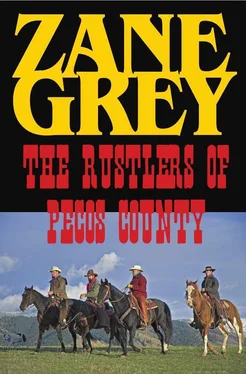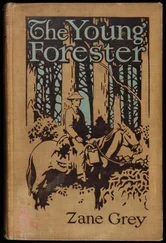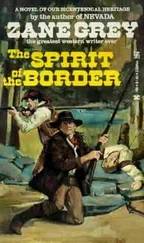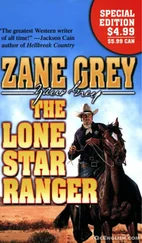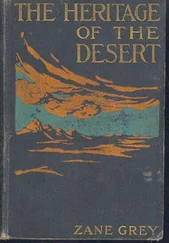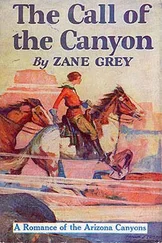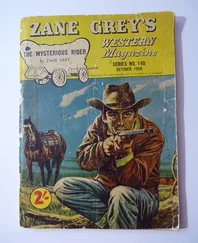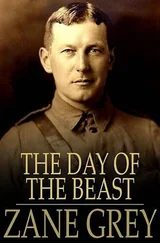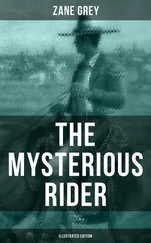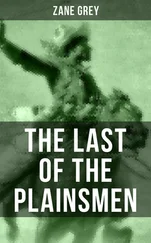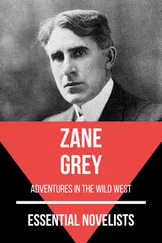Verily, Steele and I had our work cut out for us. However, we were prepared to go at it with infinite patience and implacable resolve. Steele and I differed only in the driving incentive; of course, outside of that one binding vow to save the Ranger Service.
He had a strange passion, almost an obsession, to represent the law of Texas, and by so doing render something of safety and happiness to the honest pioneers.
Beside Steele I knew I shrunk to a shadow. I was not exactly a heathen, and certainly I wanted to help harassed people, especially women and children; but mainly with me it was the zest, the thrill, the hazard, the matching of wits—in a word, the adventure of the game.
Next morning I rode with the young ladies. In the light of Sally's persistently flagrant advances, to which I was apparently blind, I saw that my hard-won victory over self was likely to be short-lived.
That possibility made me outwardly like ice. I was an attentive, careful, reliable, and respectful attendant, seeing to the safety of my charges; but the one-time gay and debonair cowboy was a thing of the past.
Sally, womanlike, had been a little—a very little—repentant; she had showed it, my indifference had piqued her; she had made advances and then my coldness had roused her spirit. She was the kind of girl to value most what she had lost, and to throw consequences to the winds in winning it back.
When I divined this I saw my revenge. To be sure, when I thought of it I had no reason to want revenge. She had been most gracious to me.
But there was the catty thing she had said about being kissed again by her admirers. Then, in all seriousness, sentiment aside, I dared not make up with her.
So the cold and indifferent part I played was imperative.
We halted out on the ridge and dismounted for the usual little rest. Mine I took in the shade of a scrubby mesquite. The girls strolled away out of sight. It was a drowsy day, and I nearly fell asleep.
Something aroused me—a patter of footsteps or a rustle of skirts. Then a soft thud behind me gave me at once a start and a thrill. First I saw Sally's little brown hands on my shoulders. Then her head, with hair all shiny and flying and fragrant, came round over my shoulder, softly smoothing my cheek, until her sweet, saucy, heated face was right under my eyes.
“Russ, don't you love me any more?” she whispered.
Chapter 4. STEELE BREAKS UP THE PARTY
That night, I saw Steele at our meeting place, and we compared notes and pondered details of our problem.
Steele had rented the stone house to be used as a jail. While the blacksmith was putting up a door and window calculated to withstand many onslaughts, all the idlers and strangers in town went to see the sight. Manifestly it was an occasion for Linrock. When Steele let it be known that he wanted to hire a jailer and a guard this caustically humorous element offered itself en masse . The men made a joke out of it.
When Steele and I were about to separate I remembered a party that was to be given by Miss Sampson, and I told him about it. He shook his head sadly, almost doubtfully.
Was it possible that Sampson could be a deep eyed, cunning scoundrel, the true leader of the cattle rustlers, yet keep that beautiful and innocent girl out on the frontier and let her give parties to sons and daughters of a community he had robbed? To any but remorseless Rangers the idea was incredible.
Thursday evening came in spite of what the girls must have regarded as an interminably dragging day.
It was easy to differentiate their attitudes toward this party. Sally wanted to look beautiful, to excell all the young ladies who were to attend, to attach to her train all the young men, and have them fighting to dance with her. Miss Sampson had an earnest desire to open her father's house to the people of Linrock, to show that a daughter had come into his long cheerless home, to make the evening one of pleasure and entertainment.
I happened to be present in the parlor, was carrying in some flowers for final decoration, when Miss Sampson learned that her father had just ridden off with three horsemen whom Dick, who brought the news, had not recognized.
In her keen disappointment she scarcely heard Dick's concluding remark about the hurry of the colonel. My sharp ears, however, took this in and it was thought-provoking. Sampson was known to ride off at all hours, yet this incident seemed unusual.
At eight o'clock the house and porch and patio were ablaze with lights. Every lantern and lamp on the place, together with all that could be bought and borrowed, had been brought into requisition.
The cowboys arrived first, all dressed in their best, clean shaven, red faced, bright eyed, eager for the fun to commence. Then the young people from town, and a good sprinkling of older people, came in a steady stream.
Miss Sampson received them graciously, excused her father's absence, and bade them be at home.
The music, or the discordance that went by that name, was furnished by two cowboys with banjos and an antediluvian gentleman with a fiddle. Nevertheless, it was music that could be danced to, and there was no lack of enthusiasm.
I went from porch to parlor and thence to patio, watching and amused. The lights and the decorations of flowers, the bright dresses and the flashy scarfs of the cowboys furnished a gay enough scene to a man of lonesome and stern life like mine. During the dance there was a steady, continuous shuffling tramp of boots, and during the interval following a steady, low hum of merry talk and laughter.
My wandering from place to place, apart from my usual careful observation, was an unobtrusive but, to me, a sneaking pursuit of Sally Langdon.
She had on a white dress I had never seen with a low neck and short sleeves, and she looked so sweet, so dainty, so altogether desirable, that I groaned a hundred times in my jealousy. Because, manifestly, Sally did not intend to run any risk of my not seeing her in her glory, no matter where my eyes looked.
A couple of times in promenading I passed her on the arm of some proud cowboy or gallant young buck from town, and on these occasions she favored her escort with a languishing glance that probably did as much damage to him as to me.
Presently she caught me red-handed in my careless, sauntering pursuit of her, and then, whether by intent or from indifference, she apparently deigned me no more notice. But, quick to feel a difference in her, I marked that from that moment her gaiety gradually merged into coquettishness, and soon into flirtation.
Then, just to see how far she would go, perhaps desperately hoping she would make me hate her, I followed her shamelessly from patio to parlor, porch to court, even to the waltz.
To her credit, she always weakened when some young fellow got her in a corner and tried to push the flirting to extremes. Young Waters was the only one lucky enough to kiss her, and there was more of strength in his conquest of her than any decent fellow could be proud of.
When George Wright sought Sally out there was added to my jealousy a real anxiety. I had brushed against Wright more than once that evening. He was not drunk, yet under the influence of liquor.
Sally, however, evidently did not discover that, because, knowing her abhorrence of drink, I believed she would not have walked out with him had she known. Anyway, I followed them, close in the shadow.
Wright was unusually gay. I saw him put his arm around her without remonstrance. When the music recommenced they went back to the house. Wright danced with Sally, not ungracefully for a man who rode a horse as much as he. After the dance he waved aside Sally's many partners, not so gaily as would have been consistent with good feeling, and led her away. I followed. They ended up that walk at the extreme corner of the patio, where, under gaily colored lights, a little arbor had been made among the flowers and vines.
Читать дальше
